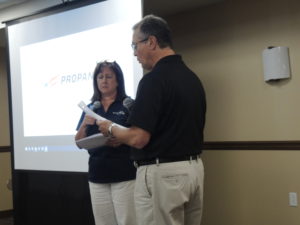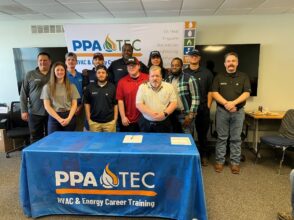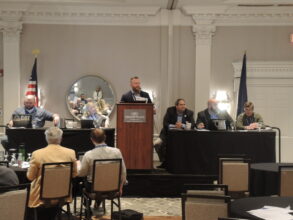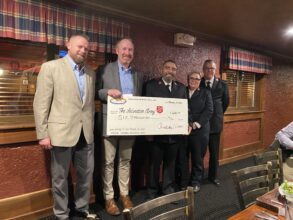Tri-State Propane Conference: Customer Service
“I smell gas.”
Those words should set off a scripted series of questions and actions by a customer service representative, says Stuart Flatow, vice president of safety and training for the Propane Education & Research Council.
In a dangerous situation, “the incorrect answer and the right answer could mean the difference between, literally, life or death,” Flatow told an audience at the Tri-State Propane Gas Conference at the Sands Resort Casino in Bethlehem, Pa.
The Propane Gas Associations of Pennsylvania, New Jersey and New York organized the conference, the first of its kind, held June 20-22.
The job of CSRs is often misunderstood and undervalued, Flatow said. He read aloud comments that he said illustrated the view that some people in the industry have of CSRs:
“They don’t really deal with propane.”
“They’re there to answer the phone.”
The people working as customer service representatives for propane companies are in “a very misunderstood job,” Flatow said. “They are the first line of defense. They can literally save lives, keep you out of court, keep you out of the news.”
Flatow described a court case in Mississippi that resulted from a tragedy that began with a report of a gas leak.
“Somebody smelled gas and they made a call,” he said. “The CSR made an assumption. And the house blew up and there was a fatality.”
The representative did almost everything right, Flatow said, advising the caller to extinguish all flames, to get out of the house, and call from a remote area. The one omitted step was to tell the customer, “Don’t go back in the house until first responders or your propane professional says it’s okay,” Flatow said. “They went back in the house and the house blew up.
“None of it was directly caused by the CSR,” Flatow said, but the representative had to give a deposition for the ensuing court case, in which an attorney drew out the representative on her knowledge of propane, or lack of it. Flatow and Jennifer Goldbach, vice president, Rhoads Energy Corp., Lancaster, Pa., read aloud from a portion of the transcript of the deposition, to underscore the importance of training CSRs.
“When CSRs receive a leak report they need to know the right questions to ask,” Flatow said. “They have to have some type of script.”
Questions should include: Have you smelled gas? For how long? Has the furnace, stove, water heater or other appliance been moved recently?
The representatives should know what to ask to help them decide whether the residence should be evacuated, whether to say, “Get out of the house. Don’t come back. Call from a distance,” Flatow said.
If the CSR concludes the residence should be evacuated, they should have a printed statement to read to the customer, Flatow advised. The statement should be to the effect, “I’ve told you to get everybody out of the house, etc., do you understand that?”
The representative should jot down the response, for record-keeping, Flatow added.
CSRs should be included in safety meetings and they should be trained in basic propane principles and practices, Flatow said. “They’re not just the ladies that answer the phone. Encourage them to ask questions. They’re part of the team.”— Stephen Bennett
PICTURED: Jennifer Goldbach, vice president, Rhoads Energy Corp., joins Stuart Flatow, PERC’s vice president of safety and training, in enacting a deposition of a customer service representative. Photo by Stephen Bennett
A version of this article appeared on pages 25-26 of the August 2018 print issue of Fuel Oil News.




